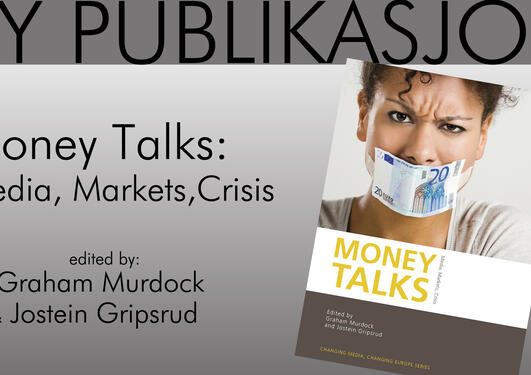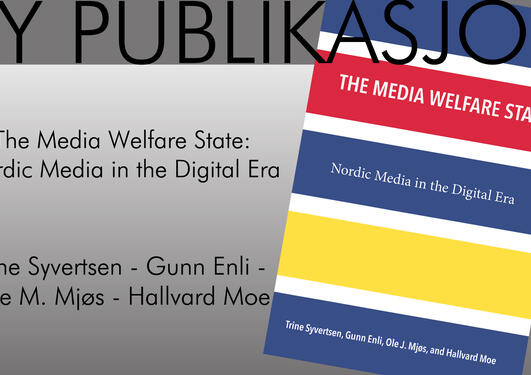Publications
The members of the Media, ICT and Cultural Policy Research Group aims for a high dissemination frequency. Although most of our production is in Norwegian, we also enjoy international reach, with monographs as well as edited anthologies, papers and articles. We here present some of the recent international publications by our researchers. We also present the the newest dissertations by the members of the group.
Main content
RECENT DISSERTATIONS
Torgeir Uberg Nærland: Music and the public sphere. Exploring the political significance of Norwegian hip hop music through the lens of public sphere theory
Nærland's thesis explores the political significance of Norwegian hip hop music through the lens of public sphere theory. It empirically investigates the role of music in the public sphere, and, probes key theoretical concepts from public sphere theory and democratic theory in regards to the perspectives these offer on the political significance of music. Thus, the thesis uses specific cases studies to address a wider question, namely, how to understand aesthetics and expressive culture within the theoretical framework of deliberative democracy. More here
Brita Ytre-Arne: Women’s magazines and their readers. Experiences, identity and everyday life
Ytre-Arne's thesis explores women's magazine reading as a media experience, and ask how regular readers of women's magazines experience these publications, and how these experiences can be related to readers’ everyday lives and to their sense of identity. A central ambition of the thesis is to suggest and demonstrate analytical approaches that are new to research on women's magazines. Throughout the thesis, women's magazine reading is conceptualized as a multifaceted media experience that encompasses perceptual, aesthetic, technological, cognitive, emotional, social and cultural dimensions. More here
Helle Sjøvaag: Journalistic Ideology. Professional Strategy, Institutional Authority and Boundary Maintenance in the Digital News Market
Sjøvaag's dissertation examines how journalistic ideology is mobilised when the profession is met by exogenous forces that challenge journalistic authority, primarily by looking at how the Norwegian commercial public service broadcaster TV 2 engages journalistic ideology as part of its news market strategies. Fundamental to journalistic ideology and its mobilisation in these encounters is the concept of a social contract operating as the driving force behind professional strategies. These issues are further contextualised within Anthony Giddens' concept of the duality of structure to illustrate the recursive nature of journalistic ideology for the maintenance of professional boundaries. More here




